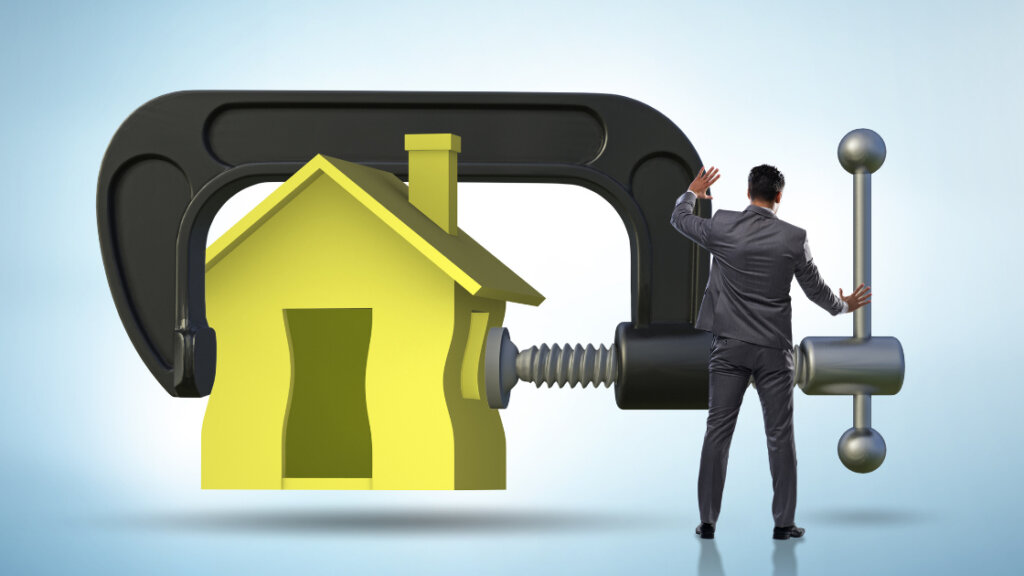
Are you tired of dealing with liens and the stress they bring? It’s time to take control of your financial situation and negotiate with creditors to remove those burdensome liens. In this blog, we will provide you with expert tips on how to navigate the process successfully. From understanding what a lien is and how it works to exploring different types of liens and their implications, including the statute of limitations and title issues, we’ve got you covered. We will also delve into the role of creditors in using liens and how they can affect property owners. Additionally, we will discuss bankruptcy, negotiation techniques, credit card companies, and the steps involved in paying off a lien holder. Say goodbye to liens and hello to financial freedom!

Understanding What a Lien Is and How Liens Work
Liens Demystified: Understanding this Legal Mechanism and Its Practical Applications, including title search. The IRS plays a significant role in the lien process, as it can file a federal tax lien against a taxpayer’s property if they fail to pay their tax debts. This lien serves as a legal claim on the taxpayer’s assets and can affect their ability to sell or transfer property. It is important to understand the implications of an IRS lien and seek professional advice to navigate the complexities of tax law.
Liens, in essence, act as security measures to protect creditor interests by imposing legal claims on various assets. Whether it’s a judgment lien, property lien, or tax lien, these encumbrances can have profound implications for property owners, lenders, and even the general public. From potential credit score impairment to property sale hindrances, liens can haunt individuals seeking financial stability. However, understanding how to negotiate with creditors to remove this type of lien is vital in regaining control over one’s assets. By familiarizing oneself with lien removal processes, including steps, expert tips, and the importance of professional guidance, individuals can untangle themselves from the web of financial burdens associated with liens and achieve a clear title.
Types of Liens: Judgment Lien, Property Lien, and Tax Liens
Liens can take various forms, including judgment liens, property liens, and tax liens. A judgment lien is a legal tool that allows a creditor to claim part of your property as payment for a debt. On the other hand, a property lien is used to secure the repayment of a debt related to real estate, such as a mortgage. Tax liens, filed by the government, are imposed on individuals who have unpaid back taxes. These liens can have severe consequences, such as foreclosure or wage garnishment. It is vital to understand the different types of liens and their potential impact on your financial situation, especially when it comes to securing your assets and ensuring you don’t lose your property in the first place.
What is a Creditor and How Do Creditors Use Liens?

A creditor is someone or an organization that is owed money by another party, called the debtor. Creditors use liens as a means to protect their interest in the debtor’s property, including debt payments. By placing a lien, the creditor has the legal right to seize and sell the property if the unpaid debt payments are not repaid. Different types of liens include mortgage liens, judgment liens, and tax liens. In some cases, creditors may act in bad faith, using unfair or deceptive practices to take advantage of debtors.
Mortgage Liens: How do they Affect Property Owners?
Mortgage liens refer to the legal claim made by the mortgage lender on a property. They can impact property owners by restricting their ability to sell or refinance the property. Owners may have to pay off the mortgage to satisfy the collateral lien before selling. Property owners must comprehend and address any implications of mortgage liens with their lenders.
Bankruptcy and Liens: May You Be Able to Remove a Lien?
It is a good idea to explore your options and determine the best course of action, consult with a bankruptcy attorney for legal advice. It is possible to remove a lien through bankruptcy, depending on the situation. Chapter 7 bankruptcy may discharge certain types of liens, while Chapter 13 bankruptcy offers the chance to negotiate lien removal through a repayment plan. To explore your options and determine the best course of action, consult with a bankruptcy attorney for legal advice.
Lien on Your House or a Property: How to Handle It

When dealing with a lien on your house or property, it is essential to take the necessary steps to resolve the issue. Start by thoroughly understanding the specifics of the lien and its implications for you as a property owner. Collect all relevant documentation and information related to the lien, including payment records and any ongoing disputes. Establish clear and open lines of communication with the creditors responsible for the lien, demonstrating your willingness to negotiate a resolution. Consider proposing a reasonable settlement amount or payment plan, taking into consideration your financial circumstances. If the negotiation process becomes overwhelming or complex, it may be advisable to seek professional assistance from a lawyer or financial advisor who specializes in liens and negotiations. By following these expert tips, you can effectively handle a lienholder on your house or property and work towards its successful resolution, ensuring the possession of the property under the new owner.
Negotiation Techniques when Dealing with Debt Collectors
When it comes to negotiating with debt collectors, it’s crucial to gather all necessary information and documentation before entering negotiations. This includes details about the debt, any disputes, and your rights as a debtor. Understanding your rights and the laws surrounding debt collection, including delinquent payments and credit card debt, can give you an advantage. Present a reasonable offer, whether it’s a repayment plan or a lump sum settlement, considering your financial situation and the amount of time available for repayment. Maintain open communication and be willing to listen and respond to the creditor’s offers. If negotiations become difficult, seek professional assistance from a lawyer or financial advisor specializing in title company debt negotiation.
Credit Card Companies and Liens: What’s the Connection?
When you don’t make payments on your credit card, the company can put a lien on your property in California. This means they have the right to take your property if you don’t pay. Liens can harm your credit score and make it hard to sell or refinance your car loan. It’s crucial to negotiate with creditors to remove liens and settle debts.
Pay off The Lien: Steps Involved and Long-term Advantages

To resolve a lien, it’s crucial to follow a systematic approach. Start by gaining a thorough understanding of the lien’s terms and conditions. Then, evaluate your financial position and determine the maximum amount you can contribute towards the payoff. Engage in negotiations with the creditor, aiming to strike a mutually beneficial settlement. Once an agreement is reached, fulfill your commitment either through a lump sum payment or a structured repayment plan. Ensure meticulous documentation of all interactions and transactions. Finally, after clearing the lien, promptly request a lien release from the creditor.
Types of Property Liens: A Comprehensive Guide
Property liens, known as legal claims for debt repayment, can have significant implications for homeowners and property owners. When it comes to liens, there are various types to be aware of, including tax liens, mechanic’s liens, and judgment liens. These liens can jeopardize your ownership rights and financial stability. It is important to consult a real estate agent for guidance on how to navigate and resolve these liens effectively.
Tax liens arise from unpaid taxes and can result in the forced sale of your property. Mechanic liens, on the other hand, are filed by unpaid contractors or suppliers for services rendered or materials provided. Judgment liens stem from court rulings against property owners.
Understanding the intricacies of property liens and exploring negotiation options is crucial in removing or releasing these encumbrances. By gaining knowledge of the lien process and seeking resolution, you can safeguard your property and financial well-being.

Frequently Asked Questions
Which of the following is a valid way to eliminate a lien?
Valid ways to eliminate a lien include paying off the debt entirely, negotiating a settlement with the creditor, filing for bankruptcy (which might remove certain liens), or disputing and proving the invalidity of the lien. Each approach has its considerations and potential outcomes.
How do I ask my creditor for a settlement?
Before approaching your creditor for a settlement, evaluate your financial position and determine a realistic payment amount. Communicate your financial difficulties sincerely, emphasizing your commitment to resolving the debt. Propose a specific settlement figure and be prepared to negotiate. It’s crucial to obtain written confirmation of any agreement before making payments or sharing sensitive information.
Conclusion
In conclusion, negotiating with creditors to remove liens in Stockton can be a complex process, but with the right strategies and knowledge, it is possible to find a resolution. Remember to understand the different types of liens and how they impact your situation. Take proactive steps to handle liens on your property, whether it’s through negotiation or paying off the lien. Seek professional guidance if needed and stay persistent in your efforts. By taking action and advocating for yourself, you can work towards removing liens and improving your financial situation. For more in-depth information and expert tips on negotiating with creditors to remove liens, download our comprehensive guide now.

Ready to sell your house with a lien? Click Cash Home Buyers have got you covered! Say goodbye to the hassle and headaches. Get a fair, fast, and hassle-free cash offer today! Click now and unlock a stress-free way to sell your home!”

Contact Us
We would love to hear from you! Please fill out this form and we will get in touch with you shortly.




